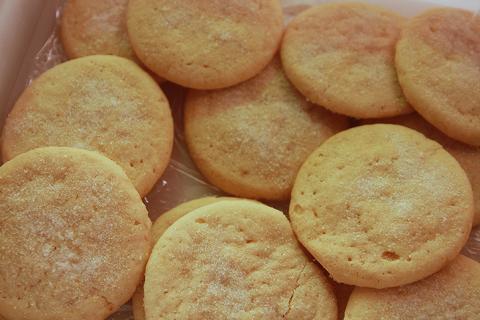 |
Canku Ota
|
 |
|
(Many Paths)
|
||
|
An Online Newsletter
Celebrating Native America
|
||
|
June 2017 - Volume 15
Number 6
|
||
|
|
||
|
Girl Scout Cookie
Phenomenon Began In Indian Country
|
||
|
by Kristi Eaton - Indian
Country Today
|
||
|
The Mistletoe
Troop of Muskogee, Oklahoma can stake claim to starting the lucrative
Girl Scout fundraiser
During World War I, times were tough, so the local scout troop in Muskogee, Oklahoma, came up with the idea to bake cookies as a unique service project in 1917, according to Jonita Mullins, a local historian in Muskogee who has written about the troop and its history. The Mistletoe troop settled on cookies and began baking sugar cookies in their mothers' kitchens before wrapping them in wax paper and taking them to Central High School to sell, Mullins said in her weekly column Three Rivers History published in the Muskogee Phoenix on March 8, 2009 about their history. The sale of cookies was a way to finance troop activities, said Lauren Zeligson, spokeswoman for Girl Scouts of Eastern Oklahoma. "The cookies were a hit and the Girl Scouts discovered a successful fundraiser that would sweep across the country," she added. Five years later, a recipe for shortbread cookies was featured in a national scouting magazine, The American Girl, by director Florence E. Neil from Chicago. "Miss Neil provided a cookie recipe that had been given to the council's Girl Scouts," Zeligson said. She estimated the approximate ingredients for six to seven dozen cookies to be 26 to 36 cents, and the cookies she suggested could be sold by troops for 35 to 30 cents per dozen. "The Girl Scout cookie business is now an $800 million-dollar business with our council raising over $1 million each year," Zeligson said. It's unclear if the girls of the Mistletoe Troop were Native American, but Mullins said it likely included Creek and possibly Cherokee girls since Muskogee straddles these two nations. She noted that Muskogee had an American Indian Girl Scout Troop starting in 1934. "Throughout the 1920s and 1930s, the Scouts baked the cookies at home, wrapped them by the dozen, and sold them door to door for 25 cents," Mullins wrote. "During World War II, the Girl Scouts turned to other fundraisers because of shortages of sugar, flour and butter. But after the war, cookie sales were resumed, this time with professional bakers vying for the chance to be licensed Girl Scout cookie producers." The first national sale of cookies took place in 1933, according to Mullins. The Mistletoe troop remained busy throughout the 1920s, taking part in several service projects. In 1921, the girls took part in a project to offer free child care at the Oklahoma Free State Fair. A year later the troop helped the city to host the national Rotary Convention. Mullins, though she was not a Girl Scout, is proud local girls started a world-wide phenomenon. "It is a major point of pride for the citizens of Muskogee." When Mullins conducts historic tours of the city, she always tells the story of Girl Scout cookies, and she notes that a statue of a Girl Scout selling cookies was placed at Muskogee's Three Rivers Museum to commemorate the historic event. Earlier this year, more than 1,500 people celebrated the 100th anniversary of the historic event. "We held cookie tastings, live music and crafts as well as activities at the Oklahoma Music Hall of Fame and Muskogee Little Theater. Three Rivers had a special museum exhibit with Girl Scout cookie memorabilia," Zeligson said. It's estimated that 50 million households in the United States buy at least one box of Girl Scout cookies each year, Zeligson said. But it's more than just selling cookies, she added. "It's a financial literacy program that teaches girls to work as a team to accomplish common goals and solve problems, while building confidence that they will need to shine as girls, as young women, and as future leaders," she said. Girls as cookie entrepreneurs learn important life skills, including goal setting, decision-making, money management, people skills and business ethics. |
||
|
|
|
|
||
|
|
||
| Canku Ota is a free Newsletter celebrating Native America, its traditions and accomplishments . We do not provide subscriber or visitor names to anyone. Some articles presented in Canku Ota may contain copyright material. We have received appropriate permissions for republishing any articles. Material appearing here is distributed without profit or monetary gain to those who have expressed an interest. This is in accordance with Title 17 U.S.C. Section 107. | ||
|
Canku Ota is a copyright ©
2000 - 2017 of Vicki Williams Barry and Paul Barry.
|
||
 |
 |
|
|
The "Canku
Ota - A Newsletter Celebrating Native America" web site and
its design is the
|
||
|
Copyright ©
1999 - 2017 of Paul C. Barry.
|
||
|
All Rights Reserved.
|
||
